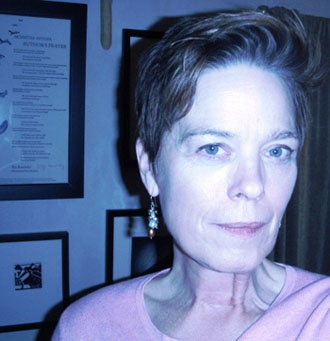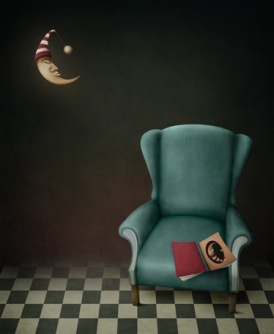Interview: Maura MacNeil
Maura MacNeil is the author of A History of Water (Finishing Line Press 2007), available here. Her poetry and prose have been published in numerous literary journals over the past thirty years, and her poetry has been nominated four times for a Pushcart Prize.
She is a cofounder and editor of Entelechy International: A Journal of Contemporary Ideas and recently served as a poetry editor for Shadow and Light: An Anthology on Memory (Monadnock Writers Group 2011). She is a professor of writing at New England College in Henniker, New Hampshire.
Maura and I knew of each other’s work through our association with the New Hampshire Writers’ Project. When I moved back to the West Coast in 2008, I lost touch with her. It was fun to spend time with her at the 2011 AROHO retreat in New Mexico. We had some great talks, and we plan to keep our coast-to-coast connection strong in years to come.
What’s the best advice you’ve received about writing?
The best advice is the most obvious: we need to sit down and write in order to be writers! Another piece of really important advice is to surround ourselves with writers who will help us become better at what we do and who do not engage in the practice of envy.
The late Don Sheehan, who was director of The Frost Place summer writing retreats in Franconia, NH, used to say that “envy is the fear that someone else’s success will somehow take away from our own.” He asked those of us who took part in the retreats, as I did for a number of years, to fight off envy if it creeps into our writing lives by allowing ourselves to fall in love with the work of others around us and to articulate our gratitude and love for that work.
I have carried that advice into the workshops I’ve taught over the years, and it sets an important tone that includes mindfulness and generosity. We must nurture our creative lives through the practice of generosity because it is through the generosity to others’ work that we attract authentic and honest feedback to our own writing.
Is there one specific moment or event at the 2011 AROHO retreat that sparked an insight or shift in how you perceive either your work or yourself as a writer?
During the retreat I recognized that the fear I carried with me as a woman writer in the context of tackling difficult subject matter, or fearing judgment from others—all that baggage that we tend to carry around as writers that keeps us from writing what we are meant to write—is part of what Marilynne Robinson spoke of as a categorical way we are taught to think. While I listened to her words I suddenly understood that I had the power to break that spell. The “deeper experience hidden from the categorical ways we are taught to think” that Marilynne spoke to was a space I suddenly felt the courage to enter because I was surrounded by women who understood those words just as I did.
I arrived at the retreat having just lost my husband who died quite suddenly in June, so I was raw with grief. But at the same time I was in an emotional space where I was completely open to the authentic creative energy of AROHO women and to the possibility that I might be able to frame a new perspective on my writing life in this foreign land of widowhood where all that was “familiar” was suddenly erased.
Over the past decade or so, even though I was writing and publishing and editing, I felt as though my life had become increasingly compartmentalized into my “life as writer” and my “other life” that was filled with obligations that constantly tugged me away from being present in my creative life. I was increasingly distracted. When Marilynne told us that we should make ourselves into someone we might enjoy being with, that we should give ourselves a creative life that as writers we want to live, her words were like an alarm going off, and I knew that something very important was happening to my sense of myself as a woman writer.
Since arriving home to New Hampshire I’m keenly aware of the ways my creative life makes me the best of who I am in the world, and I’m much more protective of my creative space. I gained courage at the retreat to say “No” to what keeps me away from moving closer to my truths as a writer and consequently more deeply into the life of the writer that I want to live.
What a beautiful story! You have a lot of courage to come to a retreat in the wilderness during a time of loss and grief. I’m so glad that you found wisdom and support there. Could you say a bit more about the writing life you’re moving into? What helps you live that life? What are you saying “yes” to?
I’m focusing my energy on nurturing relationships that inspire and support my writing life because it’s through these relationships that I’m finding possibilities in my writing. Recently seven AROHO women gathered for a morning of silent writing and reading at Mary Johnson’s house and then topped it off with a three-hour lunch. I came home full and happy! I find it interesting that I chose to work that morning on a very difficult narrative—one that I’ve been avoiding for months and months—as I felt protected in that space. Just as Mary noted that during her writing of Unquenchable Thirst she would often go to public spaces in order to write the most difficult parts of the story, I felt great comfort being in that house with those women and I muscled my way through it.
As I write, I’m carrying in me the spirit of the AROHO women who are walking the labyrinth that is the writing life—women who are committed to listening to the heartbeat that guides us to our center so we can tell the truth of our stories. Telling the truth of our stories is something that was talked about quite often during the retreat. As I’m currently working on memoir, the notion of truth is something I’m examining both emotionally and intellectually not only through my own lens, but through the lens of others in my life who will also claim ownership to certain events of my memoir’s narrative.
Can you say a bit more about what you’re currently working on, and about the difference between writing poetry and writing memoir?
I’m always writing and revising poems. My current poetry manuscript titled Lost Houses is going through another round of revisions before I send it out to the world again, but my primary focus is a memoir project that examines my family’s clan/tribal-based dynamics in relationship to the chronic illness of my oldest sister. It’s been a difficult project due to the complexities of naming my emotional truths within a protective family culture, and it has also shape-shifted and moved into unexpected directions a couple of times over the past two years that I’ve been working on it.
Memoir is a very different animal from poetry. As a poet I visualize the poem’s form, whether open or closed, as a frame that contains the piece; as a memoir writer I find the use of physical time and sequence of events, not to mention the need to maintain the integrity of voices other than my own, quite daunting. But, as Mary Johnson said in one of her presentations at the retreat, paraphrasing St. John of the Cross: “If you want to go to a place that you don’t know, you need to go in a way you don’t know.” So, on I go with the amazingly gifted and generous AROHO community surrounding me as I navigate the terrain of the unknown.
- Learn more about Maura and read “This Last Place,” the poem she read at the 2011 AROHO retreat.



Beautiful interview, Barbara, and a great one to start with on your new site. Brava.
Jayne
Thanks, Jayne! I enjoyed this exchange with Maura. I’ll be posting more interviews soon.